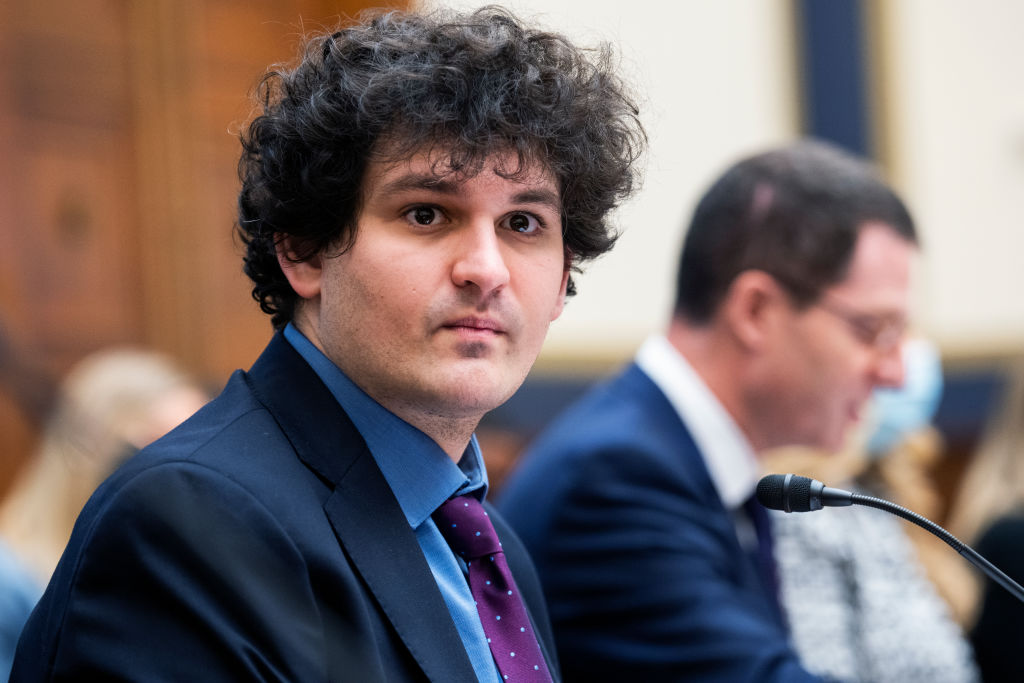News
Sam Bankman-Fried Faces Potential Sentencing of Over 100 Years in Prison

(CTN News) – A jury of twelve found FTX founder Sam Bankman-Fried guilty of all seven criminal charges presented against him. Judge Lewis Kaplan will spend the next few months thinking about how long he should keep him locked up.
The 78-year-old judge has ruled over some of the most high-profile cases through the courthouse on 500 Pearl Street in the heart of Manhattan.
Kaplan is a no-nonsense judge who won’t stand for any showmanship. Judge Kaplan is quick to scold the offending party and bring the discourse back on track if a witness is purposefully evading a question or if a counsel is being repetitious and sloppy in his cross-examination. He is not beyond reprimanding gallery spectators who chew gum in his courtroom.
It was clear to anyone in the courtroom (or who read the transcript) that the judge had little patience with Bankman-Fried throughout the four days the defendant testified.
The 31-year-old MIT alumnus commanded attention on the witness stand. When questioned directly, he often spoke in a jumbled, inconsistent, and rapid fashion.
Sam Bankman-Fried began one response to a question with, “So I should preface this by saying I’m not a lawyer.”
I’m not trying to provide a legal interpretation. I’m only relaying what I can remember. Also, the parts of this consistent with that are not me trying to rule on the legality of anything.
The – I’m not sure I’d give a definitive yes to the question in its current form. As best as I can recall, without FTX as an intermediary, customers’ fiat funds would be sent to Alameda bank accounts, and FTX would retain a — effectively a debt from Alameda for those and a — in the lien section here, a lien on Alameda’s assets as security for that ongoing liability, which would be repaid in full when the time came.

UNITED STATES – DECEMBER 8: Sam Bankman-Fried, founder and CEO of FTX, testifies during the House Financial Services Committee hearing titled
In subsequent cross-examination, Bankman-Fried suddenly became reticent, answering hundreds of questions with “Yup” and “I don’t recall.” It took dozens of these instances for the government to finally submit evidence that either directly contradicted Bankman-Fried’s testimony or provided an answer to the subject he had avoided.
Multiple litigators told CNBC that Bankman-Fried’s aggressive approach towards Assistant U.S. attorney Danielle Sassoon wasn’t a good look for the jury or judge either.
Judge Kaplan will now decide on a sentence of imprisonment. On March 28 at 9:30 AM ET, the sentence will be handed down.
Sam Bankman-Fried was convicted of wire fraud and conspiracy to commit wire fraud against FTX customers and Alameda Research lenders, conspiracy to commit securities fraud and commodities fraud against FTX investors, and conspiracy to commit money laundering.
Yesha Yadav, a law professor and Associate Dean at Vanderbilt University, told CNBC that the jury’s ability to reach a unanimous conviction in a matter of hours implies that they were fully convinced and that there were no holdouts that needed to be coaxed.
“This overwhelming consensus should give the judge confidence to follow the jury’s decisiveness by imposing a more severe sentence than a lighter one,” Yadav elaborated.
While the offender might face up to 115 years in prison under current law, that number could go up or down depending on the severity of the crimes and the defendant’s prior record.
Renato Mariotti, a veteran prosecutor in the Securities and Commodities Fraud Section of the United States Department of Justice, told CNBC, “I wouldn’t be surprised if SBF spends the next 20 or 25 years of his life in prison.”
Judge Kaplan had little sympathy for his shenanigans while on bond because “the sheer scale of his fraud was enormous, he was defiant and lied on the witness stand.” Mariotti continued, “He will feel more compassion for the victims than he does for Bankman-Fried.”
Sam Bankman-Fried had his bail revoked and was returned to jail in August after Judge Kaplan found evidence that he had tampered with a witness.
According to Mariotti, “the federal sentencing guidelines will likely be sky high, but they are just that — guidelines,” and a court must take into account “all the circumstances surrounding SBF and his offence.”
Yadav elaborated by saying that sentencing guidelines consider not only the number of victims but also the total monetary value of the harm the defendant has caused.
According to Yadav, “here there are some factors that could push the judge towards a very lengthy prison term, perhaps close to the 110 years that the sentencing guidelines suggest.”
The judge will hand down a punishment he or she deems is appropriate to punish Sam Bankman-Fried, deter future offences, and encourage a healthy respect for the law.
New York City white-collar criminal defence attorney and former Assistant U.S. Attorney Kevin J. O’Brien concurs, adding, “Since judges have discretion even under the Guidelines, I believe his sentence will be in the 15 to 20 year range.”
O’Brien noted that the judge will likely offer Sam Bankman Fried a second chance at life because of his advanced age.
Some have drawn parallels between the Sam Bankman-Fried case and that of Elizabeth Holmes, who founded the defunct medical technology firm Theranos in 2018.
In early 2022, after Holmes, then 39, testified in her own defence, she was found guilty on four counts of cheating investors in Theranos. She received a sentence of over 11 years in jail and has been incarcerated since May in a Bryan, Texas minimum-security facility.
Ex-federal prosecutor Paul Tuchmann tells CNBC that he anticipates tougher penalties for the former FTX CEO since “the amount of losses that were suffered is simply staggering.”
Tuchmann saw parallels between Sam Bankman-Fried and Bernie Madoff, who received a sentence of 150 years in prison.
“Small investors suffered heavily, as they did in the Madoff case. Tuchmann remarked that the fact that they weren’t all major universities seemed to increase the pressure to hand down a severe punishment.
Yes, there could be a moderating factor in this case. Very little time has passed for Sam Bankman-Fried. The court could take that into account. Bernie Madoff went to jail for 150 years when he was plainly much older – with limited productive years left,” Yadav remarked of the Madoff parallel.
There is still time for Sam Bankman-Fried to make a difference in the world. The nature of his crimes is not violent either,” Yadav elaborated.
There is also the possibility that in March of 2024, the Department of Justice will file a second lawsuit against Sam Bankman-Fried with wholly new allegations. If it intends to continue with the case, the government must notify the court by February 1.
Another problem, according to Yadav, is that Sam Bankman-Fried’s sentencing is scheduled for March 2024, just before the second criminal trial against him for violations of campaign finance laws and bribery of foreign officials. The prosecution is expected to enter the upcoming trial with a high degree of confidence.
This means that he faces the possibility of a sentence that is even greater than the decades-long one he is already facing if he is found guilty on these additional charges.





























